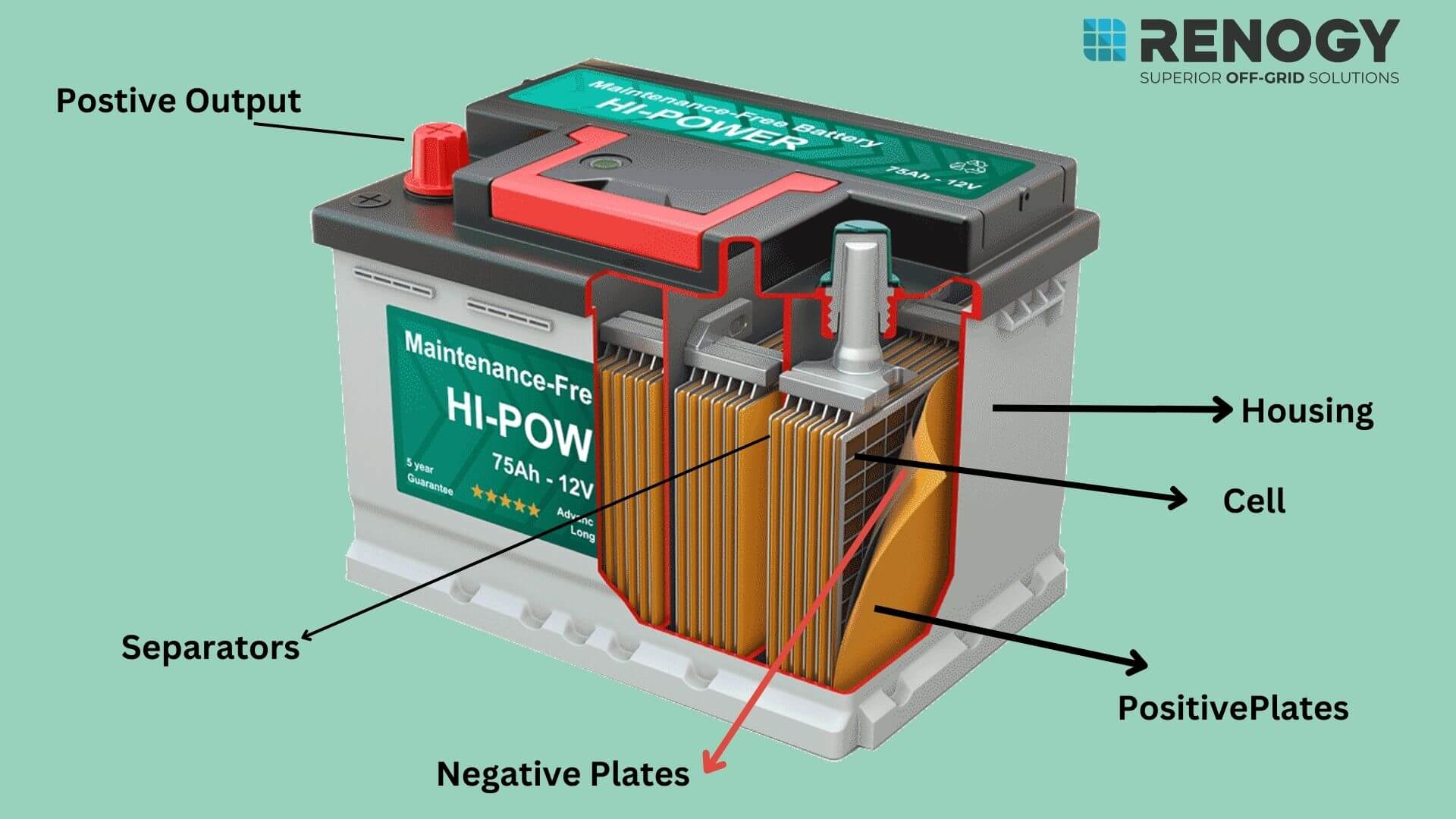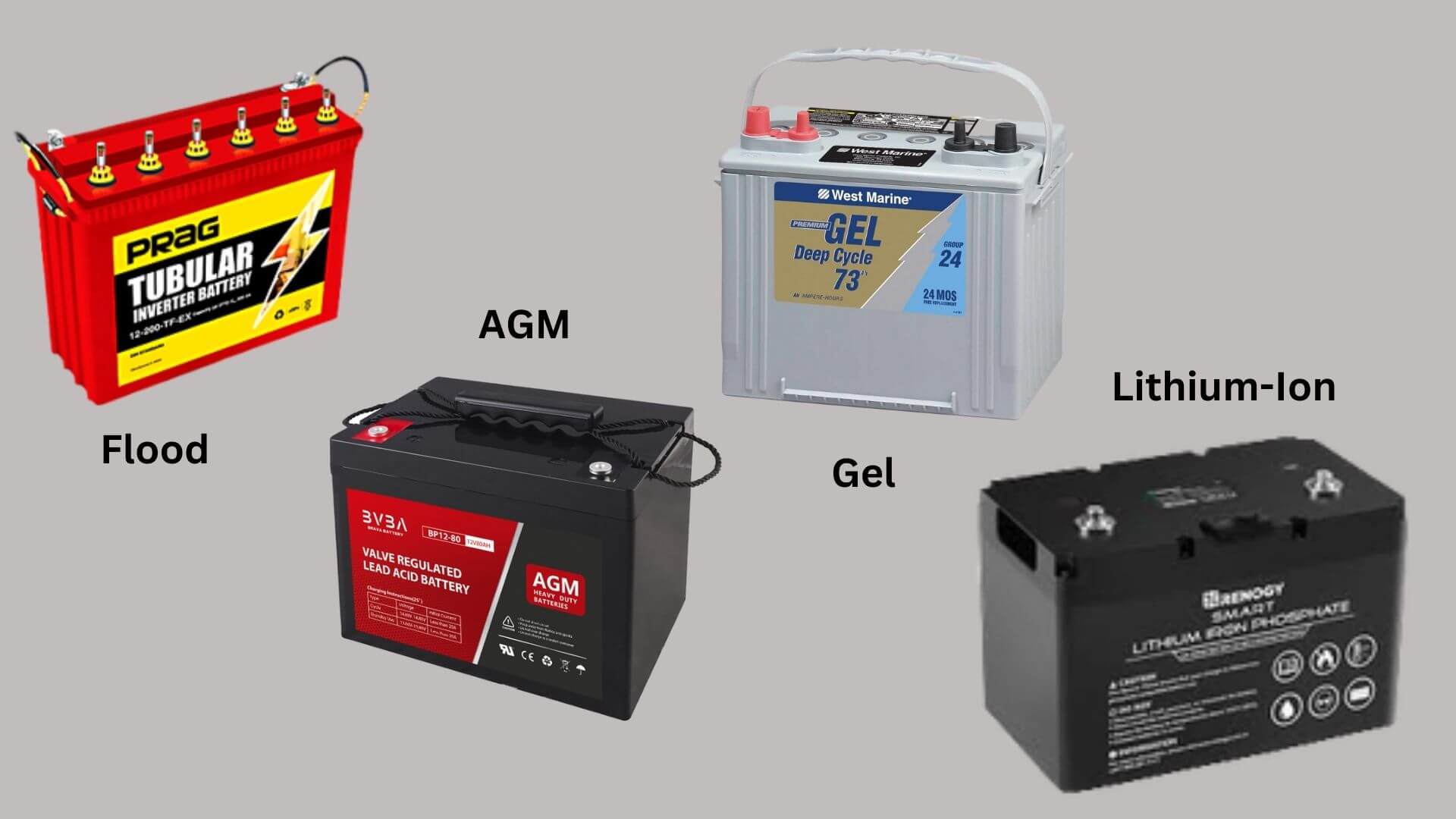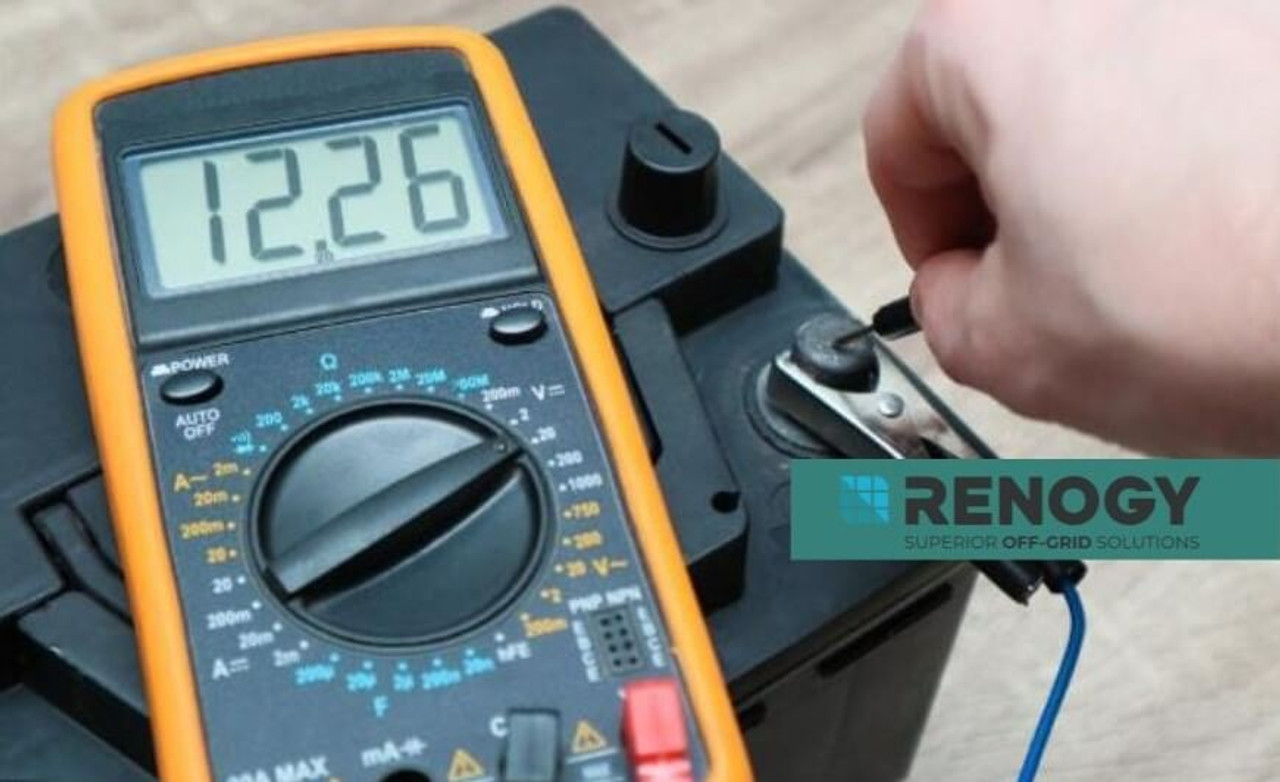12 Volt Car Battery Guide: Everything You Need to Know
A functional 12 Volt car battery is the lifeline of your car. Without it, crucial components of your car such as the engine, the lights, and the infotainment cannot work. There are various types of 12V batteries, each with its unique features. Understanding how each battery functions is key to helping you make informed decisions, especially when buying, or dealing with a 12 Volt car battery.
In this guide, we shall cover various aspects of 12V batteries including different types, features, and other battery knowledge to ensure the reliability of your car and smooth performance.
12 Volt Car Battery: What’s It and How Does It Work?
If you own a car, you're probably familiar with the 12 Volt Car Battery. It's a crucial component that powers your vehicle, but have you ever wondered how it works or what makes it so essential?
A 12 Volt Car Battery is a rechargeable battery used to start a vehicle's engine and power its electrical systems. It consists of six cells, each producing approximately 2.1 volts, making up a total of about 12.6 volts when fully charged. The primary purpose of this battery is to provide the necessary electrical energy to start the engine and run various electrical components when the engine is not running.
The major components of a 12V car battery include:

Cells: 12V batteries have six cells each consisting of 2.1 volts making it 12.6 total.
Electrolyte: One of the internal features of the 12V car battery is the sulfuric acid and water- the electrolyte. It supports chemical reactions that generate electricity for igniting the engine and other components.
Plates: Every cell has a positive and negative plate. Positive plates are made of lead dioxide while negative plates consist of lead.
Separators: Another internal component of the 12V car battery is the insulation material that separates plates to prevent short circuits.
How Does 12 Volt Car Batteries Work?
The operation of a 12 Volt Car Battery revolves around a series of chemical reactions. When you turn the ignition key, the battery sends a burst of electrical energy to the starter motor, which then cranks the engine. The battery does this through a process called electrochemical reaction, where lead plates and sulfuric acid react to produce electricity.
Understanding 12V Car Battery Type
There is a wide range of 12V battery types, each with distinct features. Some of the common 12V car batteries are:

Flooded Lead-Acid Batteries
The commonly used 12V lead-acid batteries are the flooded-lead acid. They feature lead plates suspended in sulfuric acid solution. The lifespan of the flooded-lead acid battery is 2 to 5 years depending on maintenance routine and usage. Regular maintenance is essential for optimum performance of the battery.
Pros
- Highly affordable.
- Easily and readily available.
- Experiences a steady high current discharge.
Cons
- It sometimes leaks lead acid and fumes which are dangerous for the environment.
- Must discharge at most 50% of its capacity.
- Must be fixed in a vertical position to prevent the electrolyte from leaking.
Sealed Valve-Regulated Lead-Acid Batteries (VRLA)
The sealed valve lead-acid batteries release a chemical reaction that creates hydrogen gas inside the battery. The lifespan of the VRLA batteries is relatively longer, ranging from 2 to 8 years depending on maintenance and usage.
Pros
- Zero maintenance is needed.
- They are relatively affordable.
Cons
- The price may seem relatively higher to some buyers.
- A properly maintained flooded battery may outlast a sealed VRLA battery.
Gel Batteries
Gel batteries are typically lead-acid but have a gel-like liquid for suspending lead plates. Rapid recharge and deep discharges are not recommended for these batteries. The lifespan of gel batteries ranges between 2 to 5 years.
Pros
- Requires minimal maintenance
- Can withstand working or charging under high temperatures
- It is highly affordable compared to the FLA batteries
- No limitations to the mounting position
Cons
- Cannot be discharged under 50%
- It recharges slowly
- There are additional charging and discharging costs
AGM Batteries
Absorbent Glass Mat batteries are comparable to the VRLA. The electrolyte is closely suspended to the active material of the plates. AGM batteries require zero maintenance making them suitable for harsh environments. They have a longer lifespan ranging between 4 to 7 years. AGM batteries are relatively expensive compared to other battery types.
Pros
- It is completely sealed and does not emit toxic gasses.
- No specialized charging equipment.
- Flexible to mount in any orientation.
- Allows deeper discharging.
Cons
- It is relatively heavy.
- Cannot be discharged below 60% of its capacity.
Lithium-Ion Batteries
Lithium-ion batteries have deep cycles and utilize lithium salt to achieve higher energy density. They feature a high storage capacity with improved electricity storage efficiency. Li-ion batteries charge quickly and efficiently. They are lightweight compared to conventional lead-acid batteries. Also, they are pricier due to improved safety features, longer life span, and dependable high-quality.
Pros
- Can discharge up to 100% of its capacity
- Flexible to mount in any positioning
- It features a Battery Monitoring System (BMS) for battery protection
- It delivers a consistently high voltage over a prolonged period
Cons
- Only compatible with a specialized lithium-ion battery charger
- It cannot charge in sub-zero temperature
How Much Does a New 12 Volt Car Battery Cost?
As discussed above, there are various types and brands of 12V car batteries. Therefore, the price will vary depending on the type, brand, and size. The average price of a 12V battery is $132 per Kwh. The price of most standard lead-acid batteries can vary from $100 to $250. The cost of the premium AGM batteries is higher ranging between $200 to $400. High-quality batteries such as lithium-ion are pricier because of enhanced safety, cutting-edge technology, longer lifespan, and functionality to the user, compared to lead-acid batteries.
How to Choose the Right 12 Volt Car Battery for Your Car
Choosing the perfect 12 volt car battery can be daunting due to the wide range of battery types in the market. You must ensure to choose the right battery for your car for optimal performance and durability. Here are tips to help you choose the right battery.
1. Brand Reputation
Purchase battery brands that are well-established in the market and renowned for reliability and quality. You can check customer reviews and enquire from experts to help you choose the right battery.
2. Cold-Cranking Amps
Cold Cranking Amps or CCA determine the battery’s ability to start the engine during extreme cold temperatures. A battery with a higher CCA indicates a better ability to start the engine easily and better performance.
3. Compatibility
Not every battery is compatible with every car. Before purchasing a car battery, check your car’s requirements to determine the right battery size and type for your car.
4. Environmental Impact
If you are environmentally conscious, then choose eco-friendly batteries such as lithium-ion.
5. Budget
Even though you are on a budget, do not compromise on the quality and safety of the car battery. Conduct a price comparison on various batteries to help you choose the right one.
6. Lifespan
Good-quality batteries have a longer life span compared to lower-quality batteries. Always purchase a car battery indicating the expected longevity, durability, and longer warranty.
7. The Reserve Capacity
Reserve capacity is the duration in which the battery is capable of delivering power to the car without recharging or relying on the charging system. A larger reserve capacity will provide power for a long time.
What Affects a 12V Car Battery Life?
Several factors can affect the lifespan of a 12V car battery, One of the primary factors is the climate.
Extreme temperatures, whether hot or cold, can significantly impact a battery's life. In hot climates, the heat can accelerate the chemical reactions inside the battery, leading to faster deterioration of the battery's components. Conversely, in very cold climates, the battery's capacity to deliver power can be greatly reduced, especially when trying to start the engine.
Another significant factor is how the vehicle is used. Frequent short trips can prevent the battery from fully charging, as the alternator doesn't have enough time to replenish the energy used to start the engine. This leads to a state of partial charge, which can reduce the overall lifespan of the battery. On the other hand, long periods of inactivity can also be detrimental, causing the battery to self-discharge and eventually go flat if not maintained properly.
Conclusion
When choosing the perfect 12-volt battery for your car, consider crucial factors such as compatibility, warranty, reserve capacity, CCA rating, car specifications, and sustainability of the battery. Making the right purchase will save you money and ensure zero or minimal battery-related issues with your car.
FAQs
1. What is the voltage range of a 12-volt car battery while charging and discharging?
The condition of the battery influences its voltage shift. If your car engine is off, the normal circuit voltage is 12.9V, when discharging the voltage of the battery will drop to 10V or even lower.
2. When is my 12V battery completely discharged?
If your 12 Volt car battery falls below 10V, you can consider it damaged
3. How long does my 12-volt car battery recharge once I start the engine?
On average, it takes about 800 amps to start a car. Most cars will take less than 10 seconds to start.










